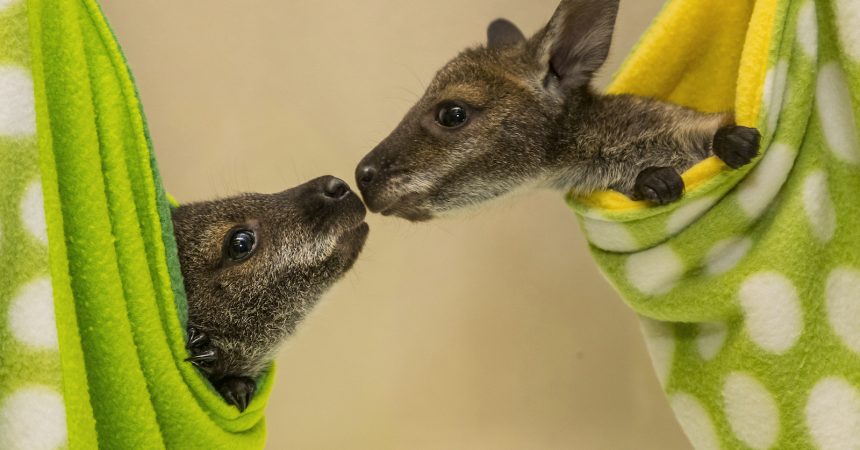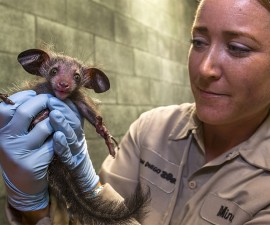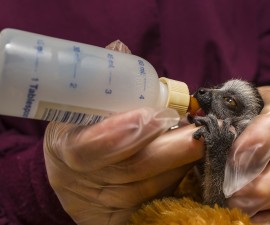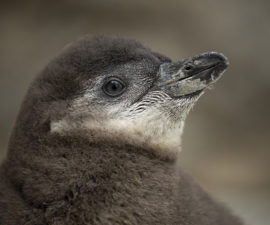The Ione and Paul Harter Animal Care Center nursery at the San Diego Zoo Safari Park received a trio of new arrivals this week: three red-necked wallaby joeys. The female joeys, ranging in age from 5 to 6 months, are being hand raised until they are old enough to join the Safari Park’s mob of wallabies.
“These wallaby joeys are mostly nocturnal and spend much of their day in their pouches, where they are most comfortable,” stated Kimberly Millspaugh, senior keeper, San Diego Zoo Safari Park. “They come out for their bottle-feedings and some occasional playtime. They are aware of each other and tend to be a little curious of one another. We see them poke their heads out at each other and touch noses from time to time.”
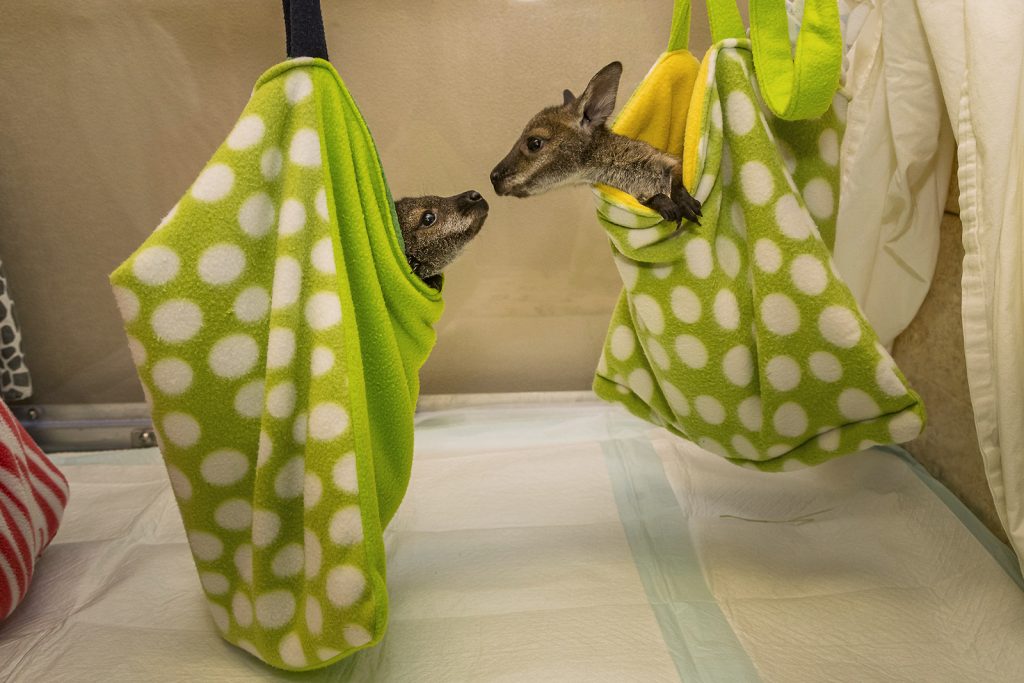
The wallaby joeys currently are drinking 3 to 5 ounces of a special marsupial formula, three to five times a day. They also are eating solid food, consisting of hay and marsupial feed pellets. They currently stand about a foot tall and weigh between 2 and 3 pounds each. They will continue to be bottle-fed for a few more months, with the amount of formula reduced and the amount of solid food increasing as they grow. When full grown, wallaby females can weigh between 26 and 35 pounds and reach a length of up to 3 feet from head to tail.
Wallabies are members of the kangaroo family, found primarily in Australia and on nearby islands. Wallabies are listed as an animal of Least Concern on the International Union for Conservation of Nature Red List of Threatened Species.
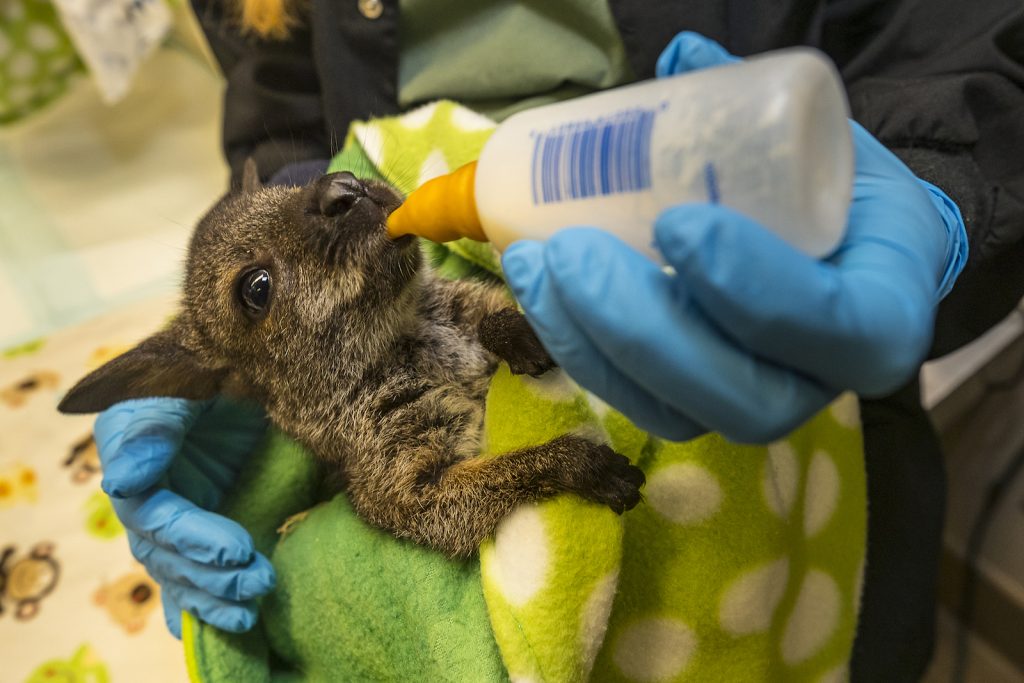 These wallabies will eventually join numerous other red-necked wallabies and gray kangaroos in an exhibit at the soon-to-open Walkabout Australia. This one-of-a-kind walkabout experience will allow Safari Park guests to explore the unique habitats and species of Australia, learn how they interact with humans who share their world and discover the challenges they face in finding water, food and shelter in their environment.
These wallabies will eventually join numerous other red-necked wallabies and gray kangaroos in an exhibit at the soon-to-open Walkabout Australia. This one-of-a-kind walkabout experience will allow Safari Park guests to explore the unique habitats and species of Australia, learn how they interact with humans who share their world and discover the challenges they face in finding water, food and shelter in their environment.
Walkabout Australia will offer guests an opportunity for up-close animal interactions with unique species like the wallabies, kangaroos and wombats. The experiences are similar to those offered by zoos in Australia, which are a key part of their work to engage local communities in species preservation.
Guests visiting the Safari Park may get a chance to see the wallaby joeys resting in their pouches, playing or being bottle-fed at the Animal Care Center at Nairobi Station, between 10 a.m. and 2 p.m. daily.

